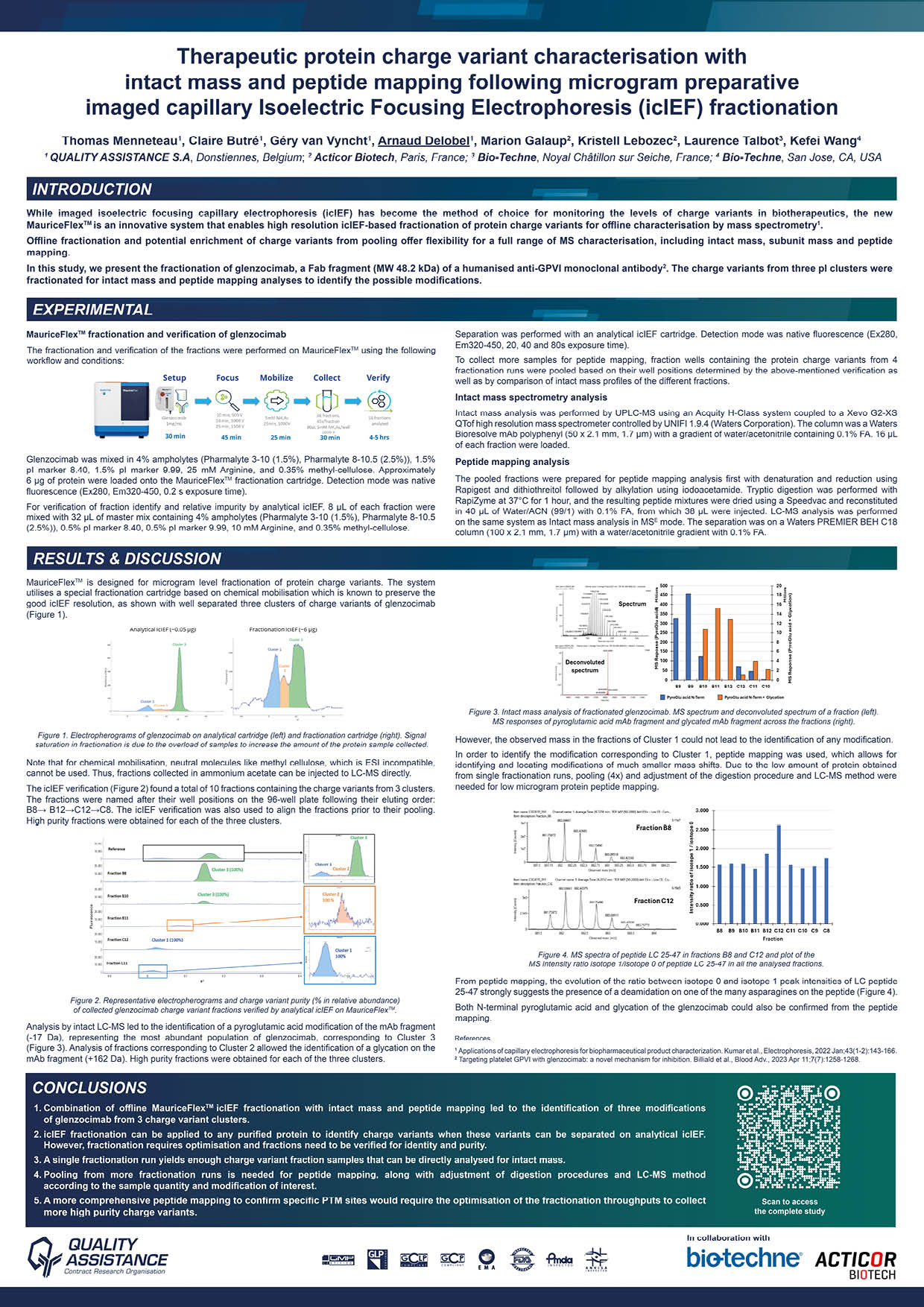Therapeutic Protein Charge Variant Characterization with Intact Mass and Peptide Mapping Following Microgram Preparative Capillary Isoelectric Focusing Electrophoresis Fractionation

While the imaged isoelectric focusing capillary electrophoresis (icIEF) has become the method of choice for monitoring the levels of charge variants in biotherapeutics, the new MauriceFlex is an innovative system that enables high resolution icIEF-based fractionation of protein charge variants for offline characterization by mass spectrometry.
The main advantage of offline fractionation and potential enrichment of charge variants from pooling offers more flexibility for a full range of MS characterization, including intact mass, subunit mass and peptide mapping.
In this study, we present the fractionation of glenzocimab, a Fab fragment (MW 48.2 kDa) of humanized anti-GPVI monoclonal antibody. The charge variants from three pI clusters were fractioned for intact mass and peptide mapping analysis to identify the possible modifications.
Conclusions:
- Combination of offline MauriceFlex icIEF fractionation with intact mass and peptide mapping led to the identification of three modifications of the glenzocimab from 3 charge variant clusters.
- icIEF fractionation can be applied to any purified protein to identify charge variants when these variants can be separated on analytical icIEF. However, fractionation requires optimization and fractions need to be verified for identity and purity.
- A single fractionation run yields enough charge variant fraction samples that can be directly analyzed for intact mass.
- Pooling from more fractionation runs is needed for peptide mapping, along with adjustment of digestion procedures and LC-MS method according to the sample quantity and modification of interest.
- A more comprehensive peptide mapping to confirm specific PTM sites would need to optimize the fractionation throughputs to collect more high purity charge variants.